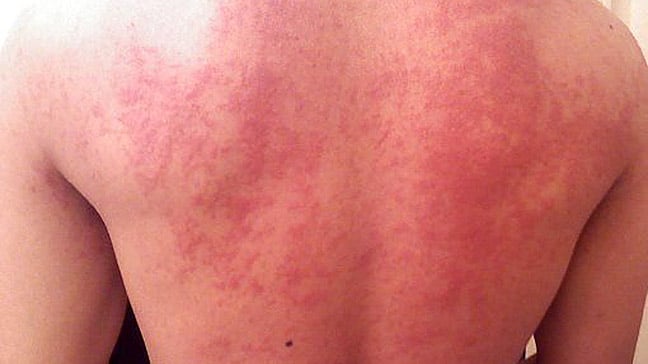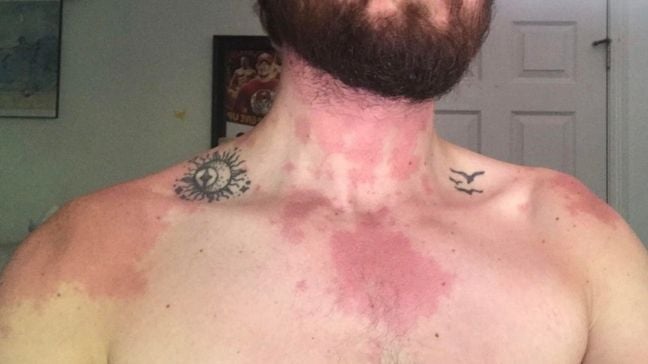Alcohol & Health
Treatment
Helping Alcoholics


In this article
An alcohol allergy is when the immune system creates antibodies to fight off a ‘perceived threat’ from compounds in the substance. People with an alcohol allergy have more severe reactions than those with an intolerance.
For those who suffer from an alcohol allergy, even a slight amount of alcohol can be enough to trigger an adverse reaction. However, it’s more common for people to experience an alcohol intolerance rather than an allergy.
Over 3 million people use BetterHelp. Their services are:
Answer a few questions to get started

Alcohol intolerance is a genetic disorder caused by the lack of alcohol dehydrogenase (ADH) or aldehyde dehydrogenase (ALDH2) in the body. These are enzymes that process alcohol.
Alcohol intolerance is an inherited trait. People of East Asian descent often have it, and a characteristic symptom of this condition is facial flushing.
On the other hand, an alcohol allergy is an immune system response. It typically creates a much more severe reaction to the components found in alcohol.
Though symptoms differ, alcohol intolerance and an alcohol allergy can cause:
Common alcohol allergy symptoms include:
Anaphylaxis, or anaphylactic shock, is a severe reaction. It can cause a rapid heart rate, weak pulse, nausea, and vomiting.
If any of these symptoms occur after ingesting alcohol, seek help immediately.


Allergic Reaction to Alcohol Photos
They’ll connect you to an addiction and mental health counselor
Find a TherapistAnswer a few questions to get started

Certain types of grains or preservatives in alcohol can cause an alcohol allergy. The body’s immune system treats one or more of the compounds found in alcohol as dangerous. Your body then creates potent antibodies to fight the ‘infection.’
There are many typical food allergens found in alcohol, including:
BetterHelp offers affordable mental health care via phone, video, or live-chat.
Find a TherapistAnswer a few questions to get started

No, alcohol intolerance and being drunk is not the same thing. The former is a physical reaction to alcohol, while the latter is due to consuming too much alcohol.
The symptoms of alcohol intolerance can occur even with small amounts of alcohol. The symptoms may not be like typical drunkenness, including flushing and other effects. However, the inability to properly break down alcohol leads to higher blood alcohol levels, even after consuming small amounts. Alcohol intolerance may also cause you to drink less because of its unpleasant effects.
Unfortunately, there are no drugs or treatments to avoid or lessen the symptoms of alcohol intolerance. The best way to prevent alcohol intolerance is to limit or avoid alcohol consumption.
Some research suggests that people with mild symptoms of alcohol intolerance can get used to excess acetaldehyde in their bodies.4 However, this is not typically recommended as acetaldehyde is highly toxic if the body cannot break it down.
A mild alcohol intolerance won’t require a trip to the doctor. Its symptoms are minimal and will go away after drinking. Limiting your alcohol intake or avoiding it altogether is the best course of action.
However, if you experience severe symptoms, seek emergency medical attention immediately. These symptoms may indicate a serious health condition requiring immediate treatment.
If you’re concerned about how a loved one reacts to alcohol, consult a doctor about an alcohol allergy evaluation. Doing so may help avoid potentially life-threatening symptoms while out drinking.
A true alcohol allergy requires diagnosis using the same methods as food and environmental allergies. To evaluate for an alcohol allergy, your healthcare provider may:
If you react in public, assess the situation and treat it accordingly. Lie down if possible and contact a healthcare professional, even if it is not life-threatening.
Alcohol intolerance and alcohol allergy are reactions you may have when drinking alcohol. While most symptoms of these two conditions are minimal, you should avoid alcohol consumption to prevent them from worsening. Consult a doctor to evaluate for a potential alcohol allergy and receive proper treatment.
In this article

